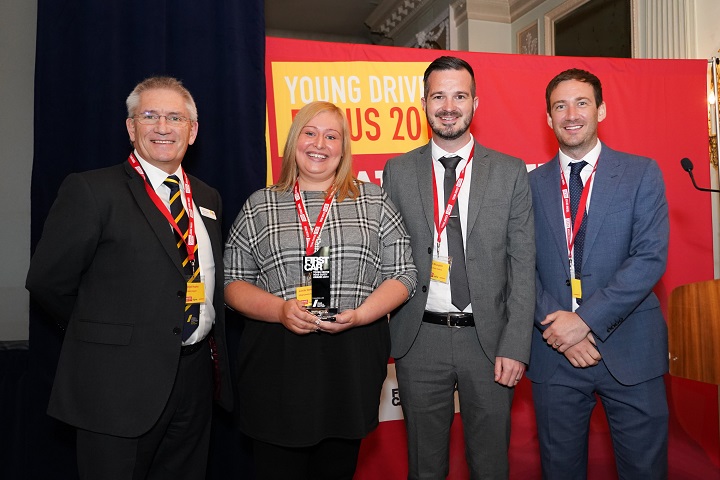
In the final feature looking at the 2019 Young Driver Road Safety Awards’ winners, we profile driVR by Safety Cameras Scotland, Police Scotland and Glasgow City Council.
Now in its fifth year, the Young Driver Road Safety Awards scheme recognises the efforts of road safety professionals to reduce casualties among young drivers.
The winners are chosen by a panel of judges with broad and extensive road safety experience. In all categories the judges look for schemes with ‘clear and measurable aims and objectives and for evidence of evaluation’.
At the 2019 awards’ ceremony, held as part of Young Driver Focus 2019 in London on 1 May, driVR was named Education and Training Initiative of the Year.
Delivering road safety messages to young and pre drivers
driVR is a 50-minute classroom intervention, aimed at 16-18 year olds, which utilises virtual reality to encourage participants to consider their attitudes towards road safety.
Funded by Transport Scotland, the project is delivered by Safety Cameras Scotland, Police Scotland and Glasgow City Council.
The learning intention is for the students to experience two VR films, take part in group discussions and complete a workbook that will lead them to contemplate if they can change their behaviour to make themselves safer on the roads.
At the end of the lesson, students are asked to set themselves goals and are provided with promotional items, including VR glasses, so that they can discuss and share their experience with friends and family.
The two VR films run for approximately five minutes. The first shows a female pedestrian in her late teens who is on her phone constantly.
The second is filmed from the front passenger seat of a Ford KA being driven by a young male, with a similar aged male in the back. The journey includes the driver using his phone, fatigued, speeding and almost hitting a cyclist.
In the final minute the viewer comes to realise that these narratives are set in the same timeline and the car and pedestrian will soon collide. The experience ends with a fade to black rather than showing any gore.
driVR was first deployed in November 2018 and has been delivered to more than 300 students. It is currently being evaluated by TRL.
Comment on this story